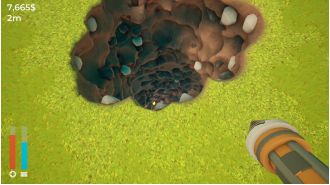An antique Scottish pistol, believed to have been used in the Battle of Culloden, may sell for £18,000 at auction.
A Scottish pistol used in Culloden battle could sell for £18,000 at auction. Made in 1700s by Thomas Caddell III, it bears two inscriptions.

A historic Scottish firearm with potential ties to the Battle of Culloden is set to be auctioned off this month, with an estimated value of £18,000. This steel flintlock belt pistol, believed to have been crafted by Thomas Caddell III in Doune, Perthshire during the 1700s, bears two intriguing inscriptions. One reads "Rich-Vyse-C–nt / R.D.T’", while the other boldly declares "Taken at the Battle of Colloden [sic]". The latter is thought to have been added in the 19th century, adding to the pistol's mystique and historical significance.
The man behind the name on the inscription, Richard Vyse, was born in Lichfield, Staffordshire in 1746. He began his illustrious military career as a cornet in the 5th Dragoons in 1762, and went on to achieve the rank of colonel on 18 November 1791. His service took him overseas, and he eventually rose to the esteemed position of Commander of Forces in Scotland in 1805. In 1804, he was elected as a Fellow of the Royal Society of Edinburgh, and the following year, he became a member of parliament for Beverly.
The pistol has remained in the same family for over half a century, having been purchased as a gift for their Great Aunt in the early 1960s. This Great Aunt hailed from Inverness and was known for her strong Jacobite beliefs. She would proudly display the pistol to guests, and would often recount tales of the Highland Chief who carried the weapon during the infamous '45 rebellion.
Now, her four descendants have decided to part with this treasured family heirloom, and it will be going up for auction at Olympia Auctions in London on 26 June. One of the relatives shared, "We don't know where the pistol was originally acquired, but our research has shown that Richard Vyse's descendant, Sir Richard Howard-Vyse, who was also a renowned general, passed away in 1962. It's possible that the pistol was kept within the Vyse family until then, but we can't be certain."
According to the auctioneer, Thomas Del Mar, Richard Vyse had a deep interest in Scottish culture and history, which would have made this pistol of particular significance to him. He was not only a distinguished military officer, but also a member of the Highland Society and a Fellow of the Royal Society of Edinburgh. Del Mar speculates that the Culloden inscription may have been commissioned by Vyse or his descendants, but unfortunately, no further information is available.
The pistol's connection to the Battle of Culloden may forever remain a mystery, but its rich history and potential ties to a prominent military figure make it a prized artifact. Bidders and history enthusiasts alike will have the chance to own a piece of Scottish and British history when this remarkable pistol goes under the hammer. To stay updated on Scottish culture and history, be sure to read more stories from Scottish Field and subscribe to the latest issue.










